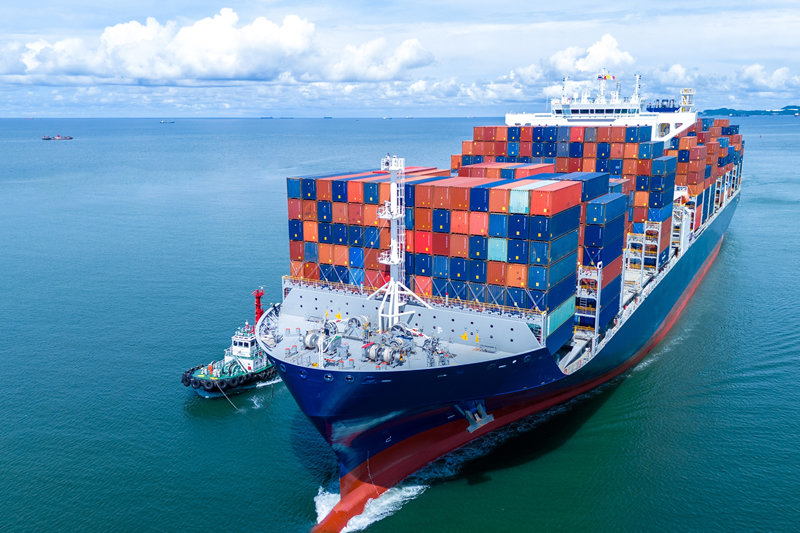IMO Looks To Finalise Proposed GHG Emissions Pricing Mechanism
10
Shipping emissions are a significant contributor to global greenhouse gas (GHG) emissions, impacting both the environment and public health. The maritime industry alone is responsible for nearly 3% of global CO2 emissions, largely due to its reliance on fossil fuels such as heavy fuel oil (HFO) and marine diesel.

Governments worldwide are now moving closer to finalising a historic carbon levy on shipping emissions, with major agreements coming from the recent 18th International Maritime Organisation (IMO) meeting in London. Countries across Africa, Asia, the Caribbean, Europe, and the Pacific, representing a large portion of the global shipping fleet, are in favor of implementing a flat-rate tax on each tonne of greenhouse gas emitted by vessels.
Widespread Support for Carbon Levy
The proposal has gained the backing of key shipping nations, including Greece, South Korea, Japan, and the UK, alongside major regulatory bodies such as the European Commission and the International Chamber of Shipping (ICS).
The suggested levy ranges between $18 and $150 per tonne of emissions, with a study by the United Nations Conference on Trade and Development (UNCTAD) analysing its economic impact. The goal of this initiative is to narrow the cost gap between conventional marine fuels and zero/near-zero GHG emission alternatives, such as green methanol, ammonia, and hydrogen, thereby incentivising their adoption. Revenue generated from the tax would be used to reward cleaner fuel production and encourage uptake, while also providing billions of dollars annually to help developing countries reduce maritime emissions.
Addressing Concerns and Finalising Negotiations
“While a large number of governments now support a universal flat-rate GHG contribution by ships, or something similar, a minority of governments still have concerns," said ICS Secretary General Guy Platten. "Working in cooperation with all IMO Member States, we will do our best to address these concerns in the final stages of these critical negotiations.”
Co-Sponsors of the MARPOL Proposal
The proposed MARPOL regulatory text has been co-sponsored by the following countries and organisations: Austria, Bahamas, Belgium, Bulgaria, Croatia, Cyprus, Czechia, Denmark, Estonia, Fiji, Finland, France, Georgia, Germany, Greece, Hungary, Ireland, Italy, Jamaica, Japan, Kenya, Latvia, Liberia, Lithuania, Luxembourg, Malta, Marshall Islands, Montenegro, Netherlands, Nigeria, Palau, Panama, Poland, Portugal, Republic of Korea, Romania, Slovakia, Slovenia, Solomon Islands, Spain, Sweden, Seychelles, Tonga, Tuvalu, Ukraine, United Kingdom, Vanuatu, the European Commission, and the International Chamber of Shipping.
With growing momentum behind this initiative, the IMO meeting could mark a pivotal moment in the global effort to curb shipping emissions and transition towards a more sustainable maritime industry.
#Protea #Emissions #Monitoring #CEMS #FTIR #Gas #Analysers #Shipping #Marine #Carbon #Capture
Other Articles
Carbon Capture Utilisation & Storage (CCUS) In 2026
16
Global Underground CO2 Storage Data Offers Hope Amid Rising Emissions
01
IMO Postpones Adoption Of Global Net-Zero Shipping Framework
04
Pioneering Carbon Capture Projects Ready For Construction
03
Methanol & Ammonia Deemed Ready As Zero-Emission Shipping Fuels
01
Carbon Capture Storage Reaching A Turning Point In Decarbonisation
13
CCS To Capture 15% Of Shipboard Carbon Emissions By 2050
29
Global Shipping Industry Struggles To Navigate Net Zero Transition
21
Carbon Capture Surges as Economics Policy & Industry Demand Align
14
GHG Emissions At Ports On The Rise Despite Initiatives
07
